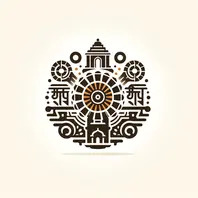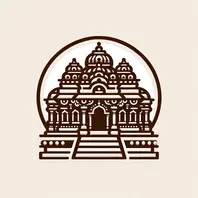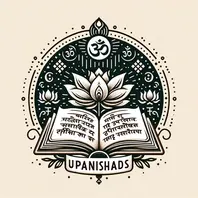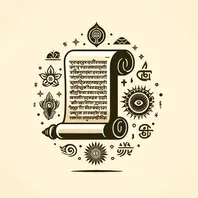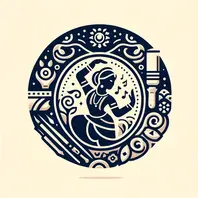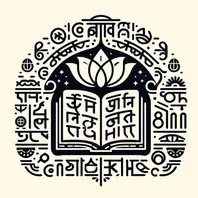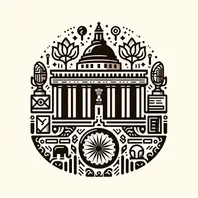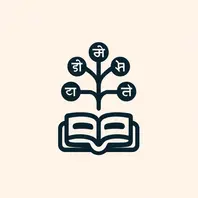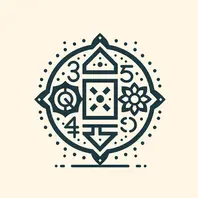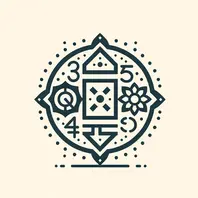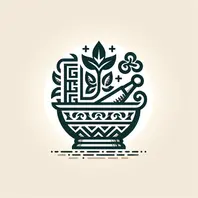गायन / वक्तृत्त्व / डबिंगची आवड असणाऱ्यांसाठी
आवाज (स्वर) संस्कार आणि संवर्धन
ऑनलाइन कार्यशाळा
मार्गदर्शक: योगेश सोमण
अभिनेता, पटकथा लेखक, दिग्दर्शक
संकल्पना: प्रा. क्षितिज पाटुकले
आयोजक: विश्व मराठी परिषद, द्वारा साहित्य सेतू

कुणासाठी अधिक उपयुक्त - खरतर सर्वांसाठी ...ज्यांना अभिनेता, गायक, डबिंग, रेडिओ जॉकी, वक्ता, राजकीयनेता, वकील, राजकीय – सामाजिक कार्यकर्ते, असे करिअर करायचे आहेत तसेच प्राध्यापक, शिक्षक, कीर्तनकार, प्रवचनकार, कलाकार, डॉक्टर, इ. सर्वांसाठी अतिशय उपयुक्त कार्यशाळा...
कालावधी
५ दिवस - रोज १ तास
दि: १४ ते १८ जुलै २०२० वेळ: सायंकाळी ७ ते ८ वा
कार्यशाळेतील मधील मुद्दे:
१) आवाज कुणाचा ? आवाज कशाला ?
२) आवाज हेच भांडवल
३) उत्तम आवाजाची गरज कोणाला ? कलाकार, वकील, नेते, इ. प्रत्येकाला
४) आवाज, स्वर आणि पट्टी यांची ओळख
५) आवजाचा रियाझ, व्यायाम, संरक्षण आणि संवर्धन
६) आवाजामुळे करिअर संधी
Affiliated to Central Sanskrit University (CSU)

Sorry! Admission is closed for this Diploma course.
Get prospectus on WhatsApp.
Click here and send a WhatsApp message and save our number (7875191270)
Indian Management System avails a very unique foundation for the modern management world i.e. the concept of Rutam i.e. ऋतम rutam is the natural spontaneous and inherent management system which balances the whole universe. The principles of Indian management system are sarve bhavantu sukhina, Vasudhaiv kutumbkam, Vishvabandhutva, right to existence and right on resources to all, Balancing Individual, Society and Universe, Fivine Wealth i.e. Ishwari Sampatti, Decentralisation of wealth, etc .
Profit is not the only motive of the management system. The holistic approach of Indian Management Ethos dose not limit it as a tool for growth only. There is fundamental difference between Indian management system and western management system. Study of Management should not be limited for the benefit of corporate industry, business and organisations. It is required for individual life, family life, society, environment and universal resources. We respect and pray wealth as goddess Lakshmi but there are certain way to earn divine wealth. Ancient texts and literature like Bhagavadgita, Arthashastra, etc narrates the idea of Indian Management System. The study of Indian Management System will open new horizons for the global management world and provide solution for global challenges and crisis. It will guide the world to achieve the sustainable goals set by UNESCO.
🌼Duration: 1 Year, From 4 Aug. 2024
🌼Eligibility – Min. 12th pass or equivalent
🌼Teaching Language – Hindi
🌼Age – No age Limit
🌼Study Material – Hard copy
🌼Study Material – Hindi or English
🌼Prior knowledge of Sanskrit is not needed.
Structure
🌼 2 Semesters
🌼 4 Papers (Subjects) per Semester
🌼 Total 8 Papers
🌼 4 Credits per Paper
🌼 2 Credits for Project
🌼 Exam / Tutorial - 1 credit Per Paper
🌼 Total Credits – 42
🌼Each session Duration - 90 Minutes (70 Min. Lecture + 20 Min Q & A)
🌼 Mode : Regular Mode
🌼 Classes will be conducted at Deccan Gymkhana, Pune
🌼 Online Classes and Recording will be available for the benefit of the students through LMS
🌼 One Community Session per month for Q & A will be organised on Zoom Live
🌼 Classes from 4 August 2024
🌼 Offline Class Timings: Every Sunday - 10:30 am to 5:30 pm
🌼 Online Support available
Fee Structure
-
1 Year: 28,200/-
-
If paid Semester Wise:
-
First Semester: 14600/- | Second Semester: 13600/-
-
Central Govt's Samarth Portal Fee for submitting Uni. Application Form: Fee Rs. 200/-
(Fees inclusive of Admission fee, Permanent registration fee, Tuition fee, Study material, Assessment, Examination fee, Supervision, Technical Support & Guidance fee, etc.)
Re-examination Fees: ₹1,000/- per subject
Diploma Syllabus
Paper 1 – Introduction to Indian Knowledge System
Learner should have basic idea and understanding of the concept of Indian knowledge system. IKS has multiple dimentions and inter connectivity. The applications at IKS are in day to day life. IKS has been evolved and developed through the voyage of centuries. Ancient Rishies, Munis and scholars have carried this vast base of knowledge systematically though oral traditions and people tradition. Learners should have overview of IKS.
Paper 2 – Principles of the Indian Management System
Students will delve into the core principles of the Indian Management System, rooted in the concept of Rutam, which emphasizes natural and inherent order. They will explore foundational values such as sarve bhavantu sukhina (universal happiness), Vasudhaiv kutumbkam (the world is one family), and Vishvabandhutva (universal brotherhood). The subject covers the balance between individual, society, and the universe, along with principles of decentralized wealth and divine wealth (Ishwari Sampatti). This comprehensive understanding will highlight how management transcends profit, focusing on holistic growth and sustainability.
Paper 3 – Ancient Management Texts and Literature
This subject introduces students to the rich heritage of ancient Indian management literature, including the Bhagavadgita, Kautilya's Arthashastra, Vidurniti, Manusmruti, and other smrutis. Students will learn about the timeless principles and strategies these texts offer, which are still relevant in modern management practices. They will explore ethical governance, strategic planning, and the moral dimensions of leadership, gaining insights into how these ancient teachings can address contemporary management challenges.
Paper 4 – Management of Individual Life*
In this subject, students will learn how management principles apply to personal life, enhancing their ability to lead a balanced and fulfilling life. The curriculum covers time management, stress management, goal setting, and personal ethics. Students will gain practical skills to manage their personal and professional lives effectively, fostering holistic well-being. By integrating these principles, they will be better equipped to contribute positively to society and their surroundings.
Paper 5 – Study of Dharma
Dharma is a very broad concept but it has been presented and percolated in a very complex and confused manner in a society at a large. Unfortunately Dharma is considered as equivalent to religion. It is very necessary and important to understand the baisc idea of dharma. Every student and learner need to be familiar of the foundations, functions and features of Dharma. Dharma is the way of living life, Dharma principles are guidelines for individual and society and balancing between individual, society and universe. Applications of Dharma are the basic rules of management of the relations between human and universe. Study of the Dharma will enlighten students that the real meaning of dharma and how it is different from religion.
Paper 6 – Emotional and Cultural Management
Students will explore the significance of emotional intelligence and cultural sensitivity in management. This subject focuses on understanding and managing emotions, both personal and organizational, and fostering a harmonious work environment. Cultural management aspects will cover the integration of diverse cultural values and practices into the management ethos, promoting inclusivity and respect. Students will learn how emotional and cultural competence can enhance leadership, teamwork, and organizational success.
Paper 7 – Indian and Western Management Systems – A Comparative Study
This comparative study will provide students with a deep understanding of the fundamental differences and similarities between Indian and Western management systems. They will analyze the philosophical, cultural, and practical aspects of both approaches. By examining case studies and real-world applications, students will appreciate the strengths and limitations of each system, ultimately learning how to integrate the best practices from both to address global management challenges.
Paper 8 – Ishwari Sampatti and Wealth Management
Students will explore the concept of Ishwari Sampatti, or divine wealth, and its implications for ethical wealth management. This subject covers the principles of acquiring and managing wealth in a manner that aligns with spiritual and moral values. Students will learn about sustainable wealth creation, equitable distribution, and the role of wealth in achieving societal well-being. By understanding these principles, they will be able to apply ethical considerations to financial management, fostering long-term prosperity and harmony.
Project
Based on the subjects covered in the program, students will be given elective topics for project. Project can be based on below point with reference to the different concepts taught in the program –
• Validation of concept
• Application of concept
• Creating physical dummy models
• Finding references and proofs for the concept, etc.
Students have to write the thesis and present it front of external faculty panel.
ASSESSMENT & EVALUATION
-
100 marks for the subject
-
Written Exam – 60 Marks, Assignment – 20 Marks, Oral – 20 Marks
-
Project – 1 Project - Thesis & Presentation (Year End)
-
Passing – Min. 40% marks in each subject
-
(Note: The written Exam will be offline at various CSU centers around the India)
Opportunities - Employment... Self Employment... Professional
🎯 Faculty - As a professor, teacher, mentor, guide, and coach in Colleges, Universities, Institutions, Professional Organizations, the IT & Software Sectors, Digital Content Creation, etc..
🎯 Professional - IKS expert, IKS Consultant, IKS Director in Corporate Companies, Professional & Social Organizations, NGOs, Media Houses, Trade Associations, Travel & Tourism, Hospitality Sector, IT & Software sector, Digital Content Creation, etc.
🎯 Research - Research Scholar in National & International Research organizations, etc.
🎯 Social & Cultural - Event Management, Social, Cultural & Service Organizations, Hospitals & Health Care etc.
Please watch the following Opportunities Video:
Contact for any inquiries -
Head Office
WhatsApp: 8421951262
(Call) Mo: 8262981614 / 8421951262
Email: namaste@bhishmaiks.org
Office Address:
622, Janaki Raghunath, Pulachi Wadi, Near Z Bridge, Hanuman Chowk, Deccan Gymkhana,
Pune - 411004 Bharat
Google Map 📍 - Click here to get directions
About Bhishma School of Indian Knowledge System
Bhishma School of Indian Knowledge System (BSIKS) is a pioneer institute in the field of Indian Knowledge System ( IKS ), Hindu Studies, and Indic Studies. BSIKS is a recognized Institute by Central Sanskrit University, Delhi (CSU). BSIKS also accredited globally by IACDSC, an international accreditation body. BSIKS has associations with Hindu Council of Australia, Dharmashree, Vijnyan Bharati, Vidya Bharati Uchha Shiksha Sansthan, IHAR - USA & India, etc. Bhishma School of Indian Knowledge System offers courses and programs from Certificate, Diploma to PhD, D.Litt. under various schools.
The whole range of knowledge system under these schools is multifarious, from the Vedas, and Upanishads to scriptural, philosophical, scientific, technological and artistic sources. The disciplines and domains of knowledge include logic, philosophy, language, technology and crafts, polity, economics and governance, ethics and sociological orders, architecture and engineering, pure sciences, earth sciences, bio sciences, poetics and aesthetics, law and justice, grammar, mathematics and astronomy, metrics, agriculture, mining, metallurgy, trade and commerce, Ayurved and yog, medicine and life sciences, geography, military science, weaponry, shipbuilding, navigation and maritime traditions, biology and veterinary science, music, dance, drama, carvings, paintings, spirituality, divinity, civilization study, culture & heritage etc. BSIKS is focusing on the revitalization of the major knowledge tradition i.e. 14 Vidyas- theoretical domains - and 64 Kalas-crafts, skill sets and arts that are useful in day-to-day living through its activities and programs.
About Central Sanskrit University
Central Sanskrit University (CSU), New Delhi (Formerly known as Rashtriya Sanskrit Sansthan) is Deemed to be a University under the Ministry of Education, Government of India created by an act of Parliament.
The Central Sanskrit University has the unique distinction of being the largest and the only multi-campus language university in the world. The Central Sanskrit University also has the privilege of acting as the nodal agency for the implementation of Sanskrit-related policies & and schemes of the Government of India. In that capacity, the university works in close coordination with the Ministry of Education, Government of India.
Important
-
To confirm your Admission click on "Apply Now" and submit the form with payment.
-
Students across the Globe can Join this Course.
-
You can pay the amount in Bank or Online using Debit/Credit card / Online Banking, UPI / Wallets
-
You will receive batch details on WhatsApp and Email.
-
Refund Policy: Amount once paid is not refundable. Can be shifted to a different program if informed 2 weeks before commencement date. Read all information and prospectus before registering.
Faculties:





